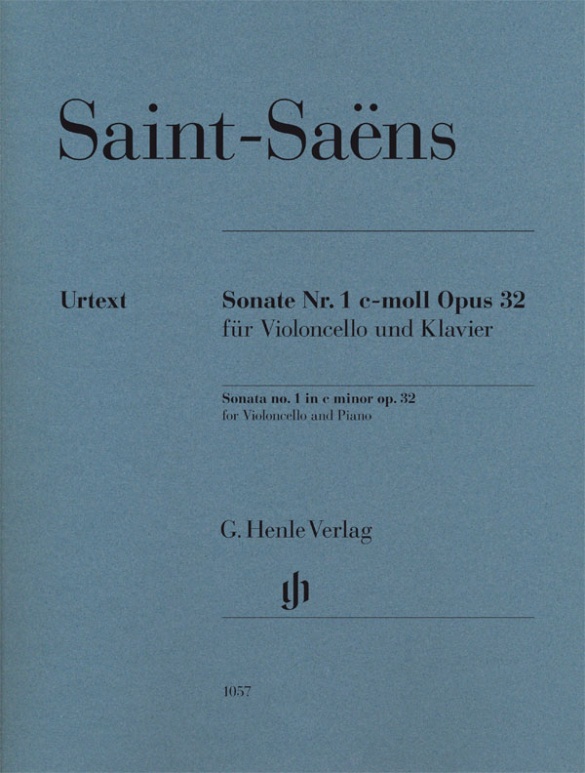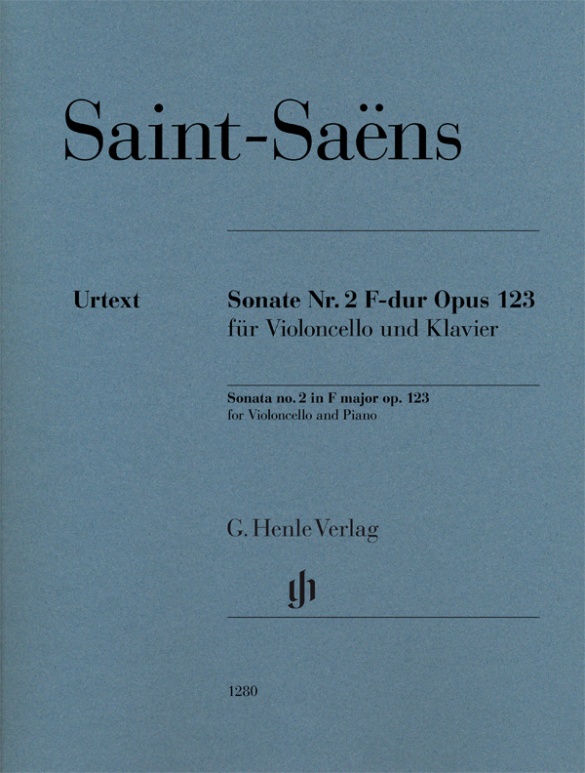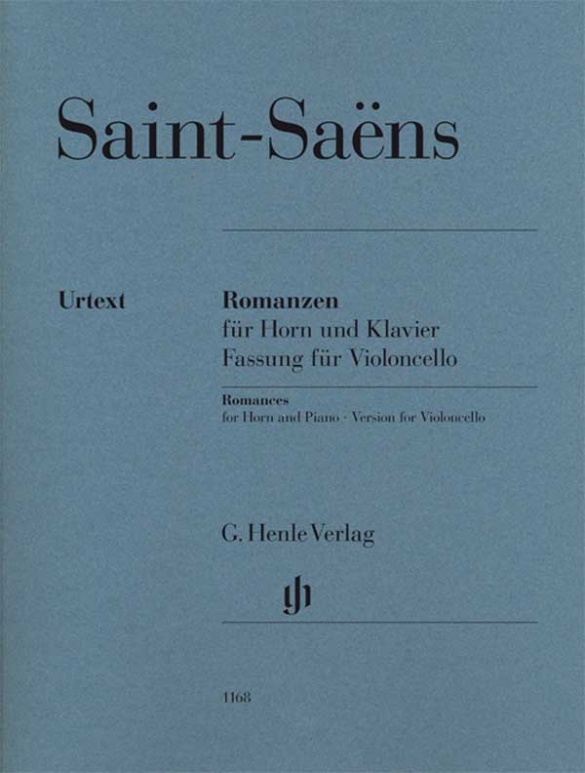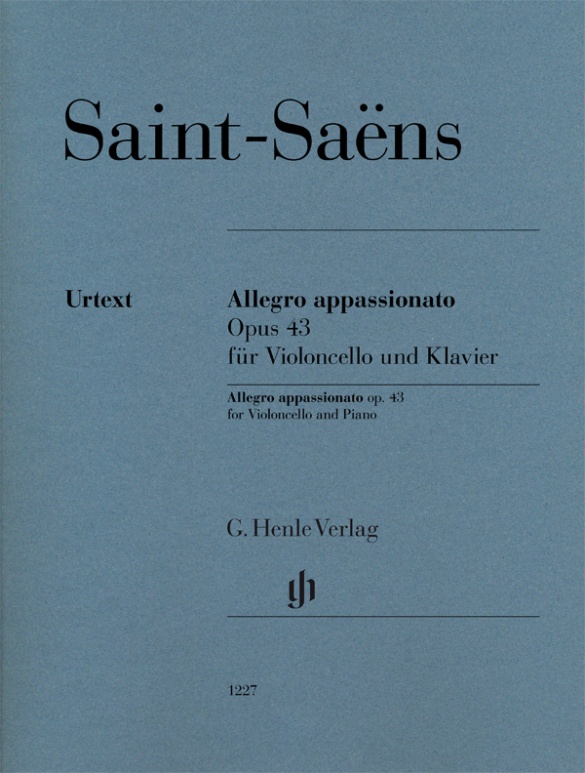

Camille Saint-Saëns
Allegro appassionato op. 43 for Violoncello and Piano
At the beginning of the 1870s, Saint-Saëns displayed a particular partiality for the violoncello. He composed his first cello sonata in December 1872, immediately after having completed the first cello concerto. It was presumably directly after this that he wrote the “Allegro appassionato” for Cello and Piano op. 43 that also appeared in a version for orchestra three years later.
We do not know why he wrote the work, but it is likely that after having written two weighty works for cello, Saint-Saëns wanted to write something “easier” that was also suitable as an encore. David Geringas kindly provided the fingering and bowing for the brilliant cello part.
Content/Details
About the Composer
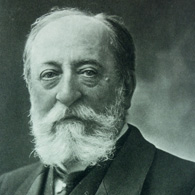
Camille Saint-Saëns
Saint-Saëns was one of the most multifaceted musicians of the second half of the nineteenth century in France. Regarded as a Classicist, he also wrote pieces with an Impressionist character to their sound, and one composition in quarter-tones. As a critic and essayist he was involved in the first complete editions of Rameau’s and Gluck’s works.
| 1835 | Born in Paris on October 9. Early comprehensive education. |
| 1848–52 | Studies at the Conservatoire de Paris. |
| 1853 | Organist at St. Merry Church in Paris. |
| 1853–59 | First large-scale works: Symphony No. 1, Op. 2 (1853), and No. 2, Op. 55 (1859); Piano Concerto No. 1, Op. 17 (1858); Violin Concerto No. 1, Op. 20 (1859); Mass, Op. 4 (1856); he attempts to arrive at unique forms. |
| 1857–77 | Organist at La Madeleine in Paris. |
| 1861–65 | He teaches at the École de Musique Classique et Religieuse Niedermeyer. |
| 1871 | Founding of the Société Nationale de musique. |
| 1871–77 | Composition of symphonic poems “Le rouet d’Omphale” (“The Wheel of Omphale,” 1871), “Phaéton” (1873), “Danse macabre” (1874), “La jeunesse d’Hercule” (1877). |
| 1876 | Attends the performance of the Ring in Bayreuth. |
| 1877 | Performance in Weimar of his opera “Samson et Dalila.” |
| 1881 | Member of the Académie des Beaux-Arts. |
| 1883 | Performance in Paris of his opera “Henry VIII.” |
| 1885 | Publication of the treatise “Harmonie et mélodie.” |
| 1886 | Performance in London of his Organ Symphony (Symphony No. 3 in C minor): major work with thematic transformation after Liszt’s model. Composition of “The Carnival of the Animals,” the publication of which he forbade during his lifetime. |
| 1899 | Publication of the book “Portraits et souvenirs.” |
| 1900 | Cantata “Le feu celeste” in praise of electricity, for the opening of the Exposition Universelle. |
| 1921 | Death in Algiers on December 16. |
About the Authors

Peter Jost (Editor)
Dr. Peter Jost, born in 1960 in Diefflen/Saar, read musicology, German and comparative studies at Saarland University in Saarbrücken. He did his PhD in 1988 with a thesis on Robert Schumann’s Waldszenen.
From November 1991 to April 2009 he was a research associate at the Richard Wagner Complete Edition in Munich, and since May 2009 has been an editor at G. Henle Publishers. His Urtext editions comprise predominantly French music of the 19th and 20th centuries, including works by Lalo, Saint-Saëns and Ravel.
David Geringas (Fingering and bowing for Violoncello)
Product Safety Informations (GPSR)

G. Henle Verlag
Here you can find the information about the manufacturer of the product.G. Henle Verlag e.K.
Forstenrieder Allee 122
81476 München
Germany
info@henle.de
www.henle.com
In einer zweiten Version der Solostimme sind Vorschläge für Strich und Fingersatz von David Geringas abgedruckt, dessen Zusammenarbeit mit dem Henle-Verlag Tradition hat. Besondere Anerkennung gilt Peter Jost, dem gewissenhaften Herausgeber.
Liebhaberorchester, 2016An excellent edition of an essential work for cellists.
AUSTA Stringendo, 2015recommendations
autogenerated_cross_selling
Further editions of this title
Further editions of this title


